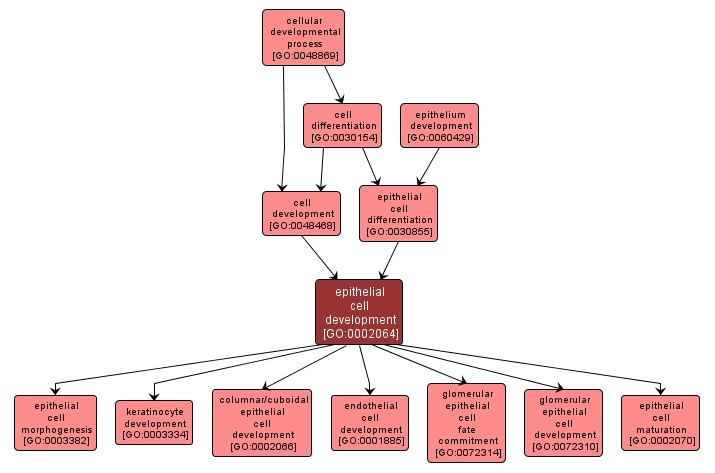GO TERM SUMMARY
|
| Name: |
epithelial cell development |
| Acc: |
GO:0002064 |
| Aspect: |
Biological Process |
| Desc: |
The process whose specific outcome is the progression of an epithelial cell over time, from its formation to the mature structure. An epithelial cell is a cell usually found in a two-dimensional sheet with a free surface. |
|

|
INTERACTIVE GO GRAPH
|














